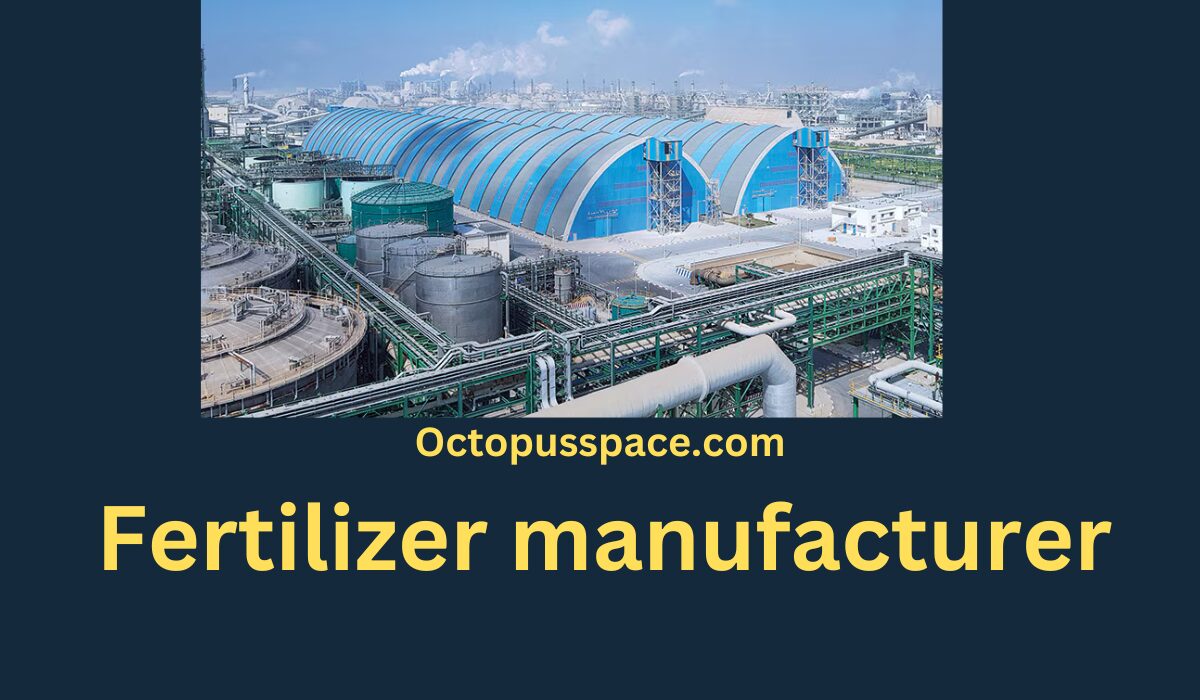Fertilizers play a crucial role in modern agriculture, boosting crop yields and ensuring food security for a growing global population. The fertilizer industry is a dynamic field, driven by technological innovations and sustainable practices. In this article, we’ll delve into the leading fertilizer manufacturers, their innovations, and the future trends shaping the industry.
Major Types of Fertilizers
Chemical Fertilizers
Chemical fertilizers are synthetic substances that provide essential nutrients to plants. They are widely used due to their high nutrient content and immediate availability to crops. Common examples include nitrogen, phosphorus, and potassium fertilizers.
Organic Fertilizers
Organic fertilizers are derived from natural sources such as animal manure, compost, and plant residues. They improve soil health by adding organic matter and enhancing microbial activity.
Bio-fertilizers
Bio-fertilizers consist of living microorganisms that promote plant growth by increasing the supply or availability of primary nutrients. They are an eco-friendly alternative, helping to reduce the reliance on chemical fertilizers.
Top Fertilizer Manufacturers in the World
Yara International
Yara International, headquartered in Oslo, Norway, is a global leader in the fertilizer industry. Established in 1905, Yara has a long history of innovation and commitment to sustainable agriculture.
Key Products and Innovations
Yara produces a wide range of fertilizers, including nitrogen-based and specialty fertilizers. They are pioneers in precision agriculture, utilizing digital tools and data analytics to optimize fertilizer application.
Global Market Presence
Yara operates in over 60 countries, with production facilities and sales offices strategically located worldwide. Their extensive distribution network ensures a strong market presence.
Nutrien
Nutrien, formed through the merger of Agrium and PotashCorp in 2018, is one of the largest fertilizer producers globally. Headquartered in Saskatoon, Canada, Nutrien has a comprehensive portfolio of crop nutrients and agricultural services.
Key Products and Innovations
Nutrien’s product lineup includes potash, nitrogen, and phosphate fertilizers. They are also investing in digital agriculture platforms to support farmers with precision farming solutions.
Global Market Presence
Nutrien operates in numerous countries, with a significant presence in North America, South America, and Asia. Their robust supply chain and distribution network ensure timely delivery of products to farmers worldwide.
The Mosaic Company
The Mosaic Company, based in Tampa, Florida, is a leading producer and marketer of concentrated phosphate and potash crop nutrients. Mosaic was established in 2004 through the merger of IMC Global and Cargill’s crop nutrition division.
Key Products and Innovations
Mosaic’s products include a variety of phosphate and potash fertilizers. They focus on sustainable mining practices and are involved in research and development to create more efficient fertilizers.
Global Market Presence
Mosaic has operations in North America, South America, and Asia. Their commitment to sustainability and innovation has strengthened their position in the global market.
CF Industries
CF Industries, headquartered in Deerfield, Illinois, is a major manufacturer and distributor of nitrogen fertilizers. Founded in 1946, CF Industries has grown to become a key player in the global fertilizer market.
Key Products and Innovations
CF Industries specializes in ammonia, urea, and other nitrogen-based fertilizers. They are focused on reducing their environmental footprint through technological advancements and sustainable practices.
Global Market Presence
With production facilities in North America and Europe, CF Industries serves a diverse range of agricultural markets. Their strategic location ensures a reliable supply chain for their customers.
IFFCO (Indian Farmers Fertiliser Cooperative Limited)
IFFCO, headquartered in New Delhi, India, is one of the largest cooperative societies in the world. Established in 1967, IFFCO plays a crucial role in supporting Indian farmers with high-quality fertilizers.
Key Products and Innovations
IFFCO offers a range of fertilizers, including urea, NPK complexes, and bio-fertilizers. They are actively involved in promoting sustainable farming practices and rural development.
Global Market Presence
IFFCO primarily serves the Indian market but also exports to various countries in Asia and Africa. Their extensive network of cooperative societies ensures wide reach and accessibility for farmers.
Innovations in Fertilizer Manufacturing
Sustainable Practices
Leading hans-chem.com are adopting sustainable practices to minimize environmental impact. This includes reducing greenhouse gas emissions, optimizing resource use, and promoting circular economy principles.
Technological Advances
Technological advancements are transforming the fertilizer industry. Precision agriculture, digital farming tools, and data analytics are enabling more efficient fertilizer application, reducing waste, and improving crop yields.
Eco-Friendly Products
Manufacturers are developing eco-friendly fertilizers that are less harmful to the environment. These include slow-release fertilizers, bio-fertilizers, and organic products that promote soil health and reduce chemical runoff.
Challenges Faced by the Fertilizer Industry
Environmental Concerns
The use of chemical fertilizers has raised environmental concerns, including soil degradation, water pollution, and greenhouse gas emissions. Addressing these issues is crucial for the industry’s sustainability.
Regulatory Issues
Fertilizer manufacturers face stringent regulations regarding production, safety, and environmental impact. Navigating these regulations while maintaining profitability is a significant challenge.
Market Competition
The fertilizer market is highly competitive, with numerous players vying for market share. Manufacturers must continually innovate and improve efficiency to stay ahead.
Future Trends in the Fertilizer Industry
Precision Agriculture
Precision agriculture is set to revolutionize the fertilizer industry. By leveraging GPS technology, remote sensing, and data analytics, farmers can apply fertilizers more accurately, reducing waste and maximizing yields.
Organic Farming Trends
The growing demand for organic food is driving the adoption of organic fertilizers. Manufacturers are developing products that cater to this market, focusing on natural and sustainable inputs.
Integration of Technology
The integration of technology in fertilizer manufacturing is enhancing production efficiency and product quality. Automation, AI, and IoT are being utilized to streamline processes and improve decision-making.
Impact of Fertilizer Manufacturers on Global Agriculture
Enhancing Crop Yields
Fertilizers play a pivotal role in enhancing crop yields, ensuring that the growing global population has access to sufficient food. Manufacturers are developing products that meet the nutritional needs of various crops.
Supporting Food Security
By improving agricultural productivity, fertilizer manufacturers are supporting global food security. Their innovations help farmers grow more food on less land, addressing the challenges of population growth and climate change.
Economic Contributions
The fertilizer industry contributes significantly to the global economy. It creates jobs, supports rural development, and generates revenue through the production and sale of fertilizers.
Case Studies of Successful Fertilizer Applications
Example 1: Improved Crop Yield in Asia
In Asia, the use of advanced fertilizers has led to substantial improvements in crop yields. Farmers have adopted precision farming techniques, resulting in higher productivity and profitability.
Example 2: Sustainable Farming Practices in Europe
In Europe, sustainable farming practices are being promoted through the use of eco-friendly fertilizers. This has helped in maintaining soil health, reducing chemical runoff, and supporting biodiversity.
Example 3: Innovative Solutions in North America
In North America, fertilizer manufacturers are providing innovative solutions that cater to the specific needs of different crops. This has led to improved crop quality and higher resistance to pests and diseases.
Conclusion
The fertilizer industry is a cornerstone of modern agriculture, playing a crucial role in ensuring food security and sustainable farming practices. Leading manufacturers like Yara International, Nutrien, The Mosaic Company, CF Industries, and IFFCO are at the forefront of innovation, driving the industry towards a more sustainable and technologically advanced future. As challenges such as environmental concerns and market competition persist, the continued evolution and adaptation of the industry will be key to its success.
FAQs
What are the most common types of fertilizers? The most common types of fertilizers include chemical fertilizers, organic fertilizers, and bio-fertilizers. Chemical fertilizers provide essential nutrients quickly, organic fertilizers improve soil health, and bio-fertilizers use microorganisms to enhance nutrient availability.
How do fertilizer manufacturers contribute to sustainable farming? Fertilizer manufacturers contribute to sustainable farming by developing eco-friendly products, adopting sustainable production practices, and promoting precision agriculture to reduce waste and improve efficiency.
What innovations are shaping the future of the fertilizer industry? Innovations such as precision agriculture, digital farming tools, eco-friendly fertilizers, and the integration of AI and IoT in manufacturing processes are shaping the future of the fertilizer industry.
How do fertilizers impact crop yields? Fertilizers provide essential nutrients that promote plant growth and increase crop yields. They help improve the quality and quantity of crops, ensuring a stable food supply.
What challenges does the fertilizer industry face? The fertilizer industry faces challenges such as environmental concerns, stringent regulations, and intense market competition. Addressing these challenges requires continuous innovation and adaptation.





